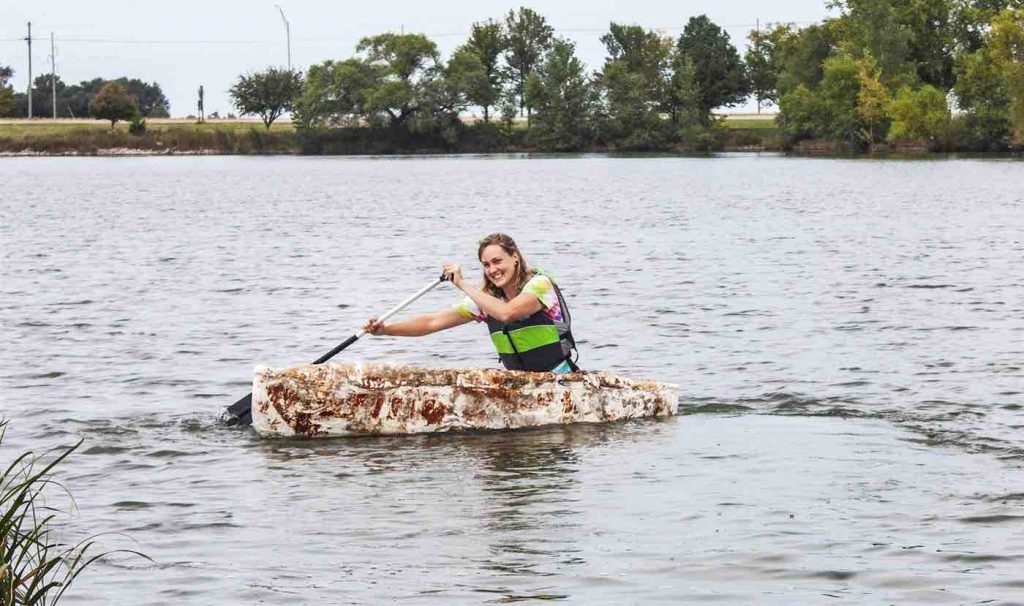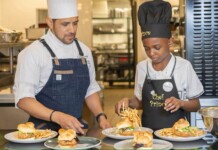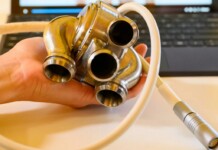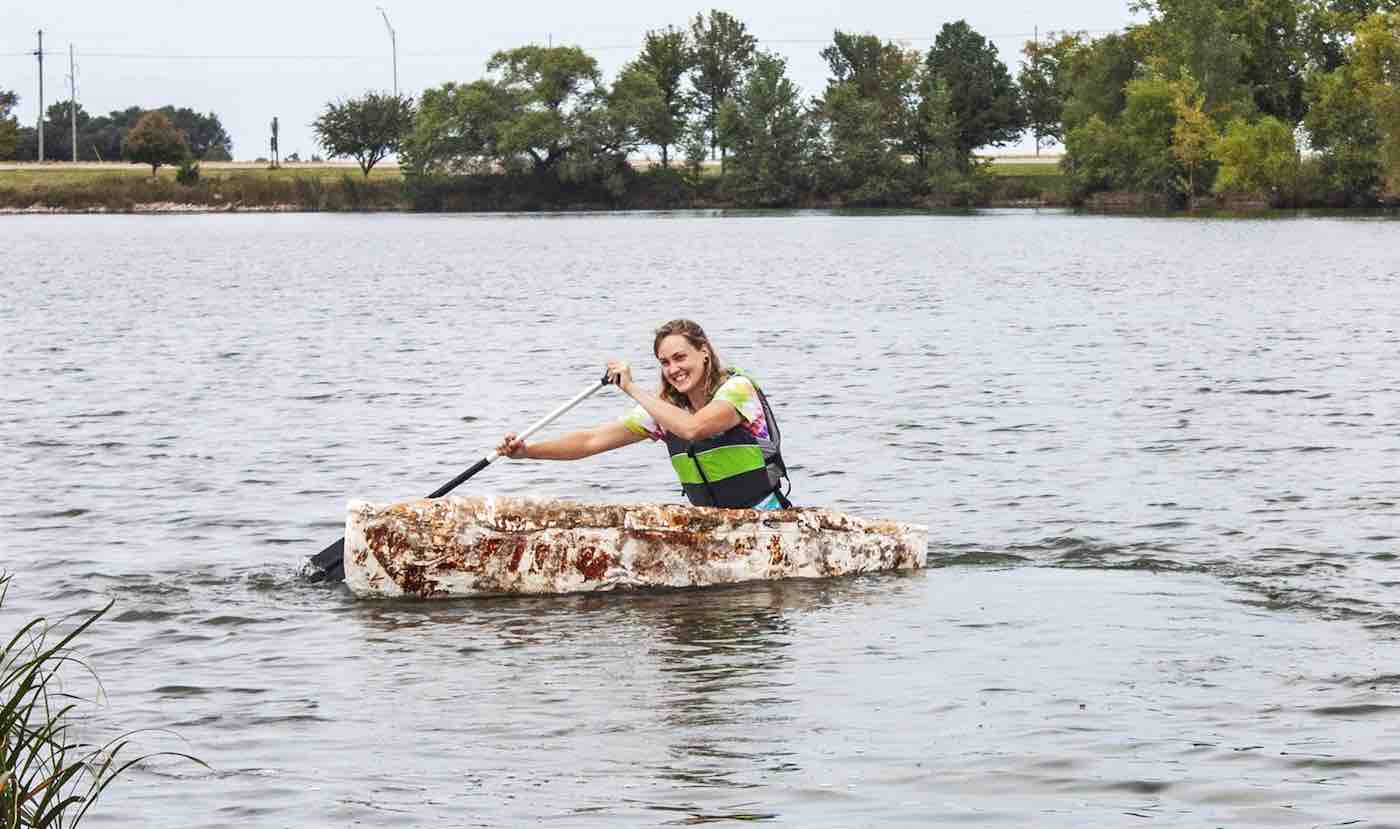An enterprising young Nebraska woman who recently ‘grew’ her own canoe out of mushroom has proven that the fungus is much more than just a dinner ingredient.
While this might sound like the beginning of a fairytale, it’s actually just Katy Ayers’s unique way of informing the public about the utility of fungi and mycelium. She used this fascinating organism—which is neither plant nor bacteria nor animal—to create a hardened, water-tight vessel which she has fondly dubbed her “Myconoe”.
“Mushrooms are here to help us—they’re a gift,” Ayers told NBC. “There’s so much we can do with them beyond just food; it’s so limitless. They’re our biggest ally for helping the environment.”
The canoe is made of mycelium—the dense, fibrous, underground material that links together the various fruiting parts (the toadstools we see on the ground or our dinner plates).
RELATED: Student Treks to Yellowstone and Finds Bacteria That Eats Pollution and ‘Breathes’ Electricity
Since mycelium can bind and form around a given skeleton, Ayers managed to grow the canoe simply by letting the mycelium sculpt itself around the wire frame of a canoe.
Sitting in a special room with temperatures of 90 degrees Fahrenheit and 100% humidity, it took only 90 days for the mushrooms to cover the entire skeleton of the canoe. The Myconoe now weighs just 100 pounds after it was dried in the hot Nebraska summer sun. It also still fruits after it is taken out on the water, meaning it continually grows mushrooms and releases spores.

Ayers started her project by reaching out to Nebraska Mushroom’s Ash Gordon, who offered her a summer internship after she received a small grant from her university in Columbus, Nebraska, to pursue a mushroom-oriented climate change solution.
“I always have very big ideas,” she said. “So I see something and it’s small and I just want to make it bigger and better. Since I’m from Nebraska, I love to fish. I’ve always wanted a boat. Why not just grow it?”
CHECK OUT: Newly-Developed Enzyme That Breaks Down Plastic Bottles in Hours Can Change the Recycling Game
“It really helps bridge that gap between people who didn’t have an interest in mushrooms—maybe they don’t like to eat mushrooms and really haven’t thought about other potential uses for them,” Gordon told NBC. “The boat gave them something to look at and think about.”
The project cost $500 for spawn, tools, and other equipment, but the success has spurred Katy and Gordon to experiment with creating other hard objects like chairs and landscape architecture materials out of mycelium.
Already, mushrooms are being used to create compostable car parts for Ford and Ikea has committed to transition much of its plastic packaging to a mushroom-based renewable alternative.
And Katy is set to become a sweet helper for bees: inspired by research that showed how honeybees which consumed mycelium had lower levels of a harmful virus, she is beginning to work with low-income students to create bee hotels.
Plant Some Positivity By Sharing The Good News With Friends On Social Media…




















